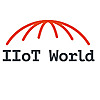
The current supply chain management (SCM) system has several fundamental problems that could be solved by blockchain applications. From inventory stockpiling to counterfeit products, blockchain applications could help to minimize these issues and save billions of dollars. Many of these applications, which were discussed in the Harvard Business Review, are summarized below. While the current SCM does not support the improvements that blockchain could make, it’s important to consider how blockchain can, and likely will, impact the future of SCM.
What Are the Current Problems With Supply Chain Networks?
Within the supply chain ecosystem all the way from manufacturers to the end consumer, there are several problems with how inventory is manufactured and transported including:
- Maintaining quality control standards for specific product SKUs (stock-keeping units)
- Accurate lead times for manufacturing and shipping
- Duplicate SKUs reported on shipping manifests
- Inability to track products in real-time from Point A to Point B
- Counterfeit products that some distributors mix with real product to repackage and ship
- Tedious financial audits using legacy enterprise resource planning (ERP) systems
- Improper inventory allocation which leads to confusion in purchase agreements
These problems may seem small at the surface level, especially since they are all fundamentally database issues. However, these issues cost third-party logistics providers (3PL’s), manufacturers, wholesalers, consumer businesses, and individual consumers billions of dollars each year in return orders and fraud.
How Can We Use Blockchain Technology to Create a Transparent Value Chain?
A Proof of Work or Proof of Stake ledger can very easily solve all of these problems in SCM. With the application of public/private keys that connect to RFID tags for physical products, a blockchain SCM network will improve traceability, efficiency, and financial auditing for contracts.
Traceability
Using the blockchain ledger for supply chain transactions will make it clear who the originator for a product is and who the current owner is which will improve fraud detection for counterfeit products across international borders. This will also identify faulty products earlier in the value chain. Additionally, integrating ERP systems with blockchain networks will create a single source of truth and remove any human errors in shipping manifests.
Efficiency
With a transparent ledger, no manufacturer or distributor can simply hold inventory from customers due to convenience without prior disclosure. Additionally, a transparent supply chain will allow for improved forecasting of goods both because there will be less variability for lead times and because customers can optimize their demand forecasts to maintain a lower base stock policy.
Financial Auditing for Contracts
Smart contract languages like Solidity are incredibly beneficial for automating the terms of a contract based on execution within a ledger. There will be no confusion over how much inventory was consigned versus purchased outright. Further, it will be easier for all parties along the value chain to maintain a no-discrepancy bill of lading and general financial records for auditing various holding, transportation, and labor costs as well as incoming revenue per SKU.
These benefits are incredibly useful, especially during times like the COVID-19 pandemic where there are shortages of essential goods in many local markets. If we look at the Port of Los Angeles in the United States as an example, with a blockchain framework for supply chain, we will be able to ascertain which product SKUs are still in containers on ships, which products are on dry land at the ports, and which products have been unloaded at the local site for facilities management.
In the Current Ecosystem, Why Will Blockchain-Based Systems Fail for SCM?
A transparent supply chain sounds great on the surface, but unfortunately, the current business ethos among companies across the entire supply chain stack is to maintain secrecy. Let’s say Apple Inc. is planning on unveiling a new iPhone at their conference next year. They may not want analysts or other entities to know that there are new product SKUs arriving at their headquarter’s site or flagship retail stores ahead of a launch. Additionally, many international manufacturers like to prioritize big purchase orders over small orders from startups or local businesses, in part due to the fact that large bulk orders are cheaper to handle at a per SKU level.
Without some level of government regulation or pressure from the public to provide more transparency, companies are not going to change their operations, as these changes give little strategic edge over competitors. With that said, I am confident that at some point in the next few decades with increased digitization of supply chain networks, a transparent value chain built on a decentralized network will be the new operating model for international trade.





 Related Podcast Episode
Related Podcast Episode




 Related Applications
Related Applications



 Latest IoT News
Latest IoT News









